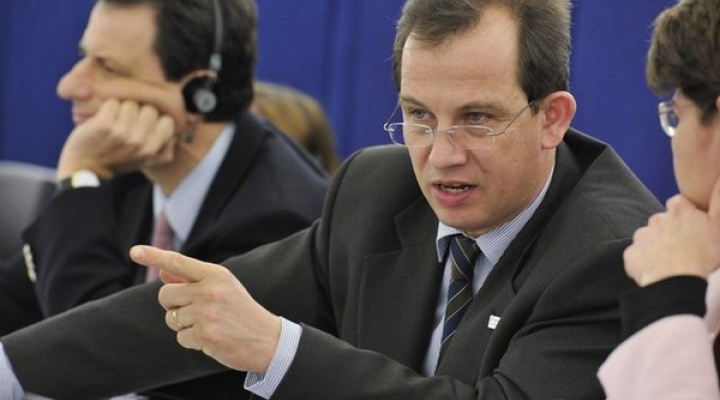Csaba Sógor spoke of the manifestations against Hungarians in Romania on the plenary session of the EP
DAHR’s MEP Csaba Sógor raised his voice against recent manifestations against Hungarians in Romania during the one-minute speeches at the first day of the plenary session of the European Parliament in Strasbourg.
In his speech on Monday, June 6th, the Hungarian MEP from Transylvania made reference to the hostile manifestations towards the opening of the Representative Office of Szeklerland in Brussels, but also mentioned the attacks against the peaceful commemorations of the Trianon treaty held in Transylvania.
Here follows the MEP’s speech:
„Multiculturalism means that neighboring nations know each other’s history, culture and language. The absence of this common knowledge explains the hysteria created during the last days in Romania.
Two Romanian counties opened a representative office in Brussels. According to a reporter from Bucharest the main problem is that the population of the two counties consists mainly of different ethnicity that the national majority. Is this a problem in the Europe of today?
An equally strange idea is to forbid your neighbor to commemorate the day he lost his wealth, land, perhaps family members. An example of this occurred in the last days when we commemorated the treaty ending the First World War on the 4th of June.
There is an antidote for the exclusionary, silencing, history-denying attitude that is also repressive towards the development of a region: an open, inclusive, strong Europe that cherishes cultural values and respects minority rights.”
Here follows the MEP’s speech:
„Multiculturalism means that neighboring nations know each other’s history, culture and language. The absence of this common knowledge explains the hysteria created during the last days in Romania.
Two Romanian counties opened a representative office in Brussels. According to a reporter from Bucharest the main problem is that the population of the two counties consists mainly of different ethnicity that the national majority. Is this a problem in the Europe of today?
An equally strange idea is to forbid your neighbor to commemorate the day he lost his wealth, land, perhaps family members. An example of this occurred in the last days when we commemorated the treaty ending the First World War on the 4th of June.
There is an antidote for the exclusionary, silencing, history-denying attitude that is also repressive towards the development of a region: an open, inclusive, strong Europe that cherishes cultural values and respects minority rights.”











